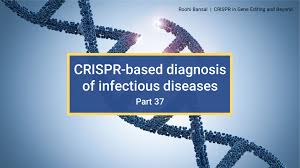Science
Featured
Editing Life's Code: CRISPR Breakthroughs Poised to Revolutionize Medicine, Igniting Fierce Ethical Debates
Editor
Jun 20, 2025
min read
4 views

The revolutionary gene-editing tool CRISPR-Cas9 is reaching a new level of maturity and sophistication in 2025, moving from a promising laboratory technique to a powerful therapeutic reality. Recent breakthroughs are enhancing the precision and safety of CRISPR, unlocking the potential to treat a range of devastating genetic diseases, from sickle cell anemia to muscular dystrophy. However, as the technology's power grows, so do the profound ethical, social, and regulatory challenges. The world is now grappling with the immense promise and potential peril of a technology that allows humanity to directly rewrite the code of life.
The clinical progress has been remarkable. Following the first landmark approvals of CRISPR-based therapies, the pipeline of treatments is expanding rapidly. By mid-2025, several clinical trials are showing promising results. For sickle cell anemia and beta-thalassemia, therapies that involve editing a patient's own hematopoietic stem cells to produce healthy red blood cells are proving to be transformative for trial participants. Scientists are also making significant strides in targeting cystic fibrosis by repairing the defective CFTR gene in lung tissue, with early-phase trials demonstrating improved respiratory function. Innovations in delivery mechanisms, such as advanced lipid nanoparticles and modified viral vectors, are making it easier and safer to get the CRISPR machinery into target cells within the body (in vivo editing), opening the door to treating a wider array of conditions.
Technological refinements are addressing one of CRISPR's most persistent concerns: off-target effects, where the tool makes unintended cuts in the genome. Newer variants of the Cas enzyme, like high-fidelity Cas9 and CRISPR-Cas12, offer greater specificity. Furthermore, the development of 'base editing' and 'prime editing' allows scientists to make precise single-letter changes to DNA without making a double-stranded break in the DNA, significantly reducing the risk of unwanted insertions or deletions. "We are moving from a molecular scissors to a molecular pencil," explains Dr. Anya Sharma, a researcher at the Innovative Genomics Institute. "This level of precision is critical for ensuring these therapies are not only effective but also safe for widespread clinical use."
Yet, this incredible therapeutic promise is shadowed by deep ethical concerns. The most contentious issue remains germline editing—making heritable changes to sperm, eggs, or embryos. While this could theoretically eradicate hereditary diseases from a family line forever, it also opens a Pandora's box of 'designer babies,' where enhancements for traits like intelligence or physical appearance could become possible. This raises the specter of a new eugenics, creating a genetic divide between the rich who can afford such enhancements and the rest of society. As of 2025, a broad international consensus holds that germline editing for reproductive purposes is a red line that should not be crossed, but the debate is far from settled.
Accessibility and equity present another major ethical hurdle. The first approved CRISPR therapies come with astronomical price tags, often exceeding a million pounds per patient. This raises urgent questions about who will have access to these life-saving treatments. Without concerted global effort and new payment models, there is a significant risk that these revolutionary medicines will exacerbate existing health inequalities, becoming available only to the wealthiest individuals in the wealthiest nations. Patient advocates and bioethicists are calling for new frameworks to ensure equitable distribution.
Beyond human health, the use of CRISPR in agriculture and conservation is also a subject of intense discussion. Gene-edited crops could enhance food security by creating plants that are more nutritious and resilient to climate change. However, concerns about biodiversity and the long-term ecological impact of releasing genetically modified organisms into the environment persist. 'Gene drives,' which use CRISPR to force a particular genetic trait through a population, could be used to eliminate disease-carrying insects like mosquitoes but also carry the risk of unintended and irreversible ecosystem disruption.
As CRISPR technology continues its rapid advance, society is faced with a series of profound questions. How do we ensure these powerful tools are used responsibly? Who gets to decide what constitutes a disease to be cured versus a human variation to be accepted? How can we ensure equitable access to these transformative therapies? The journey of CRISPR in 2025 is a testament to human ingenuity, but it is also a critical test of our collective wisdom and foresight in managing a technology with the power to shape the future of our species.
Editor
League Manager Editorial Team





Leave a Comment